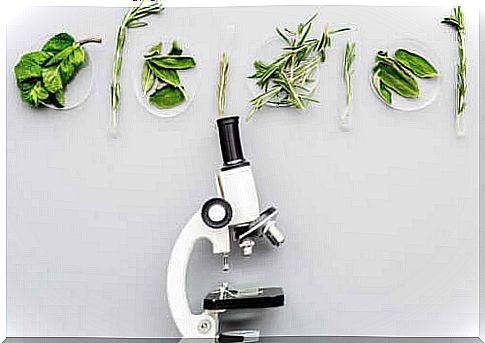Does Genetically Modified Food Benefit In Any Way?

Genetically modified food (GMOs) is more common today than ever before. Yet it is often seen as the output of a dystopic society, which is why it often causes repulsion. Can’t it be good to edit a genetic code as fundamental as our environment?
Several different interviews have revealed that negative attitudes towards such food are quite common in the population. 33.4% of those interviewed believe that genetically modified food has more harm than good, while only 22.8% of people give its approval.
The subject still evokes conflicting feelings, but first it is made clear what genetically modified food really is.
What is genetically modified food?
A genetically modified food is a food derived from a genetically modified organism that incorporates genes from another living being to obtain the desired properties. Therefore, not all foods sold in the market have this property.
It is also important to distinguish between genetic and transgenic selection. Many foods are products derived from the appropriate crossing of plants with the best possible genes (those with the largest seeds, the most amazing fruits, the best colors, etc.). However, these are not genetically modified plants.
In order to meet this criterion, their inheritance has had to be artificially modified in some way. This may sound complicated, and it is! For this reason, we limit our explanation of how companies produce genetically modified food to the very basic concepts:
- The bacterium Agrobacterium tumefaciens has the ability to transfer genetic information to plants that it invades through possible breakdowns in the plant. These bacteria go into intercellular spaces and bring their genetic information there in the form of a plasmid. This integrates with some parts of the plant’s genome.
- This bacterium thus acts as a means of transferring DNA. The plasmid it transfers has been pre-engineered by introducing genetic information from other bacteria that have some desired trait.
- This is how it forms a new, genetically modified food.
This is a simple explanation of one of the most widely used methods of genetically modified food production.

What are the benefits of genetically modified food?
Numerous studies, such as this study published in the Journal of the Royal Society of Medicine, report on the benefits of genetically modified food.
Firstly, it must be borne in mind that more than 840 million people in the world live below the poverty line. They are less likely to reach a daily intake of 2,000 kilocalories. Human activity is needed to produce resources.
- Genetically modified food can provide more nutritional benefits. A clear example of this is golden rice, modified by geneticists to facilitate vitamin A synthesis, especially in developing countries where it is impossible to follow a balanced diet. Already 72 grams of this rice represents half the recommended dose of vitamin A in a three-year-old child.
- Genetic modification facilitates food production. There are GM crops that control pests and diseases, which means less crops are spoiled. This will also bring greater economic benefits to farmers as well as increase food availability.
- It will help create crops that are more resilient to climate change. This is still in the laboratory stage, but crops will have to be genetically modified to combat the effects of climate change in the coming years.

Is genetically modified food dangerous?
As far as the health of the general population is concerned, according to the World Health Organization, there is no research evidence of any real risk associated with genetically modified food.
There is also no evidence that genetically modified food causes cancer. These foods undergo extensive testing, especially to prevent toxicity and allergenic effects in the general population. To date, no generally accepted genetically modified food has ever caused side effects.
Of course, not everything is just positive. There is always a risk that modified crops will cross-pollinate with other, inferior plants, which could upset the balance of the natural ecosystem. Pest-resistant plants may also end up adversely affecting other plant species.
So not everything is just good in genetic modification. It can have detrimental effects on natural ecosystems and the species that live in them. In addition, there is a risk of monopolizing food resources, where only those who have access to these methods will succeed in the market in the future.
As you can see from this article, genetically modified food has a bad reputation and is well under a magnifying glass. However, it has both pros and cons. The question is: Can we live without it on our overpopulated planet threatened by climate change in the near future?









